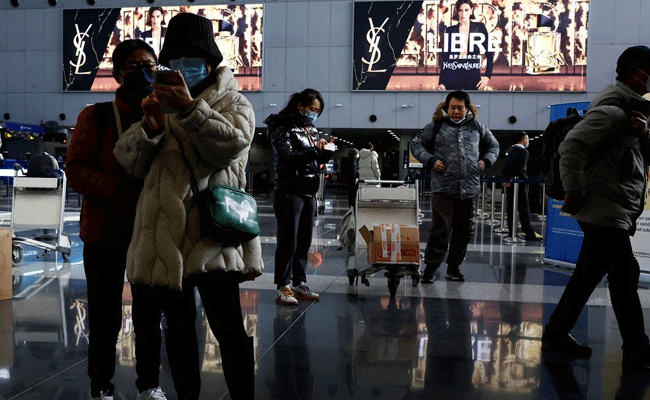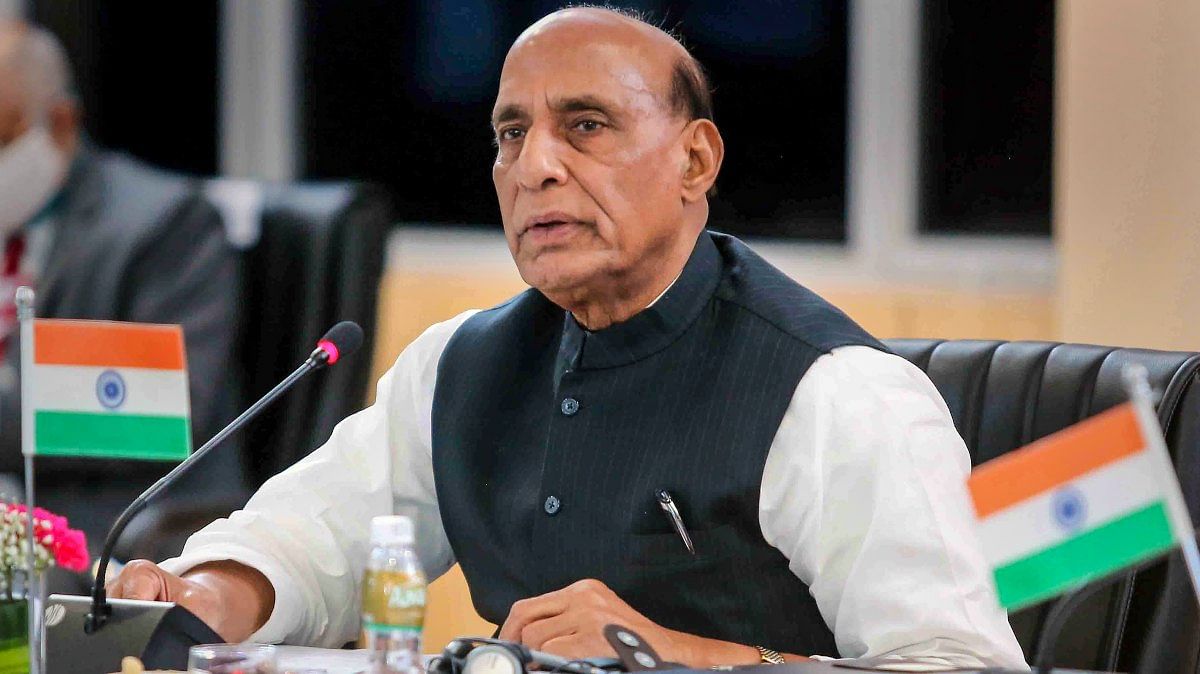Beijing (PTI): Days after it faced nationwide anti-government protests against its stringent zero-Covid policy, China in a major shift of its coronavirus response policies has announced that it will scrap quarantine for international travellers from January 8 as it reopens its borders and comes out of international isolation after nearly three years.
The National Health Commission (NHC) on Monday announced that COVID-19 management will be downgraded from Class A to B from next month, in the same category as less-severe diseases, such as Dengue fever.
China will cancel inbound quarantine for international arrivals starting from January 8, 2023, it said.
Previously passengers coming from abroad had to mandatorily stay in over two weeks of quarantine in government accommodations, which was gradually reduced to five days with three days' of observation.
These announcements come at a time when the country is grappling with a sudden spurt in coronavirus infections fuelled by the Omicron variant after the Xi Jinping regime relaxed its stringent zero-Covid policy earlier this month following a wave of anti-government protests.
Officials argue that the Omicron variant was not as lethal as the Delta strain, which caused massive casualties all over the world.
COVID-19 has been managed as a top category 'A' infectious disease since 2020, putting it at par with bubonic plague and cholera, the Hong Kong-based South China Morning Post reported.
Under Chinese laws, authorities must impose the toughest restrictions such as quarantine and isolation of the infected and their close contacts, and lockdowns to contain those diseases.
At the border, the infected must be isolated and those who might be infected quarantined, depending on the incubation period.
The NHC also stopped announcing daily Covid cases from Sunday.
The novel coronavirus first emerged in the central Chinese city of Wuhan in December 2019 before it turned into a pandemic.
Let the Truth be known. If you read VB and like VB, please be a VB Supporter and Help us deliver the Truth to one and all.
Karwar (PTI): Defence Minister Rajnath Singh on Saturday arrived at the strategically located Karwar naval base in Karnataka, where he will soon flag off Indian Ocean Ship SAGAR.
The Union minister arrived at the naval base around 1 pm where he was given a Guard of Honour at the Parade Ground.
The defence minister landed at the key base in a military chopper, and is scheduled to spend a few hours here, with a number of engagements lined up.
During his visit to the base in the afternoon, he will also inaugurate some newly developed infrastructure at the key naval site, officials earlier said.
The Navy is expanding the crucial naval base as part Project 'Seabird'.
"Raksha Mantri Shri @rajnathsingh will flag off #INSSunayna as the Indian Ocean Ship SAGAR with 44 personnel from 9 navies embarked onboard, from #Karwar today," the Office of Raksha Mantri posted on X on Saturday.





